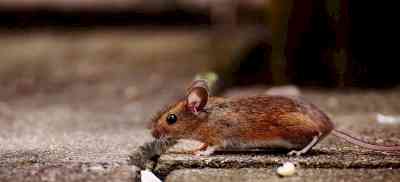First genetically engineered mice fight Covid, like young & healthy humans
Researchers have genetically engineered the first mice that get a human-like form of Covid-19.

New York, Nov 2 (IANS) Researchers have genetically engineered the first mice that get a human-like form of Covid-19.
Researchers from New York University-Grossman School of Medicine created lab mice with human genetic material for ACE2 -- a protein snagged by the pandemic virus so it can attach to human cells as part of the infection.
The mice with this genetic change developed symptoms similar to young humans infected with the virus causing Covid, instead of dying upon infection as had occurred with prior mouse models.
"That these mice survive creates the first animal model that mimics the form of Covid-19 seen in most people -- down to the immune system cells activated and comparable symptoms," said Jef Boeke, Director of the Institute for Systems Genetics at NYU Langone Health.
"This has been a major missing piece in efforts to develop new drugs against this virus.
"Given that mice have been the lead genetic model for decades, there are thousands of existing mouse lines that can now be crossbred with our humanised ACE2 mice to study how the body reacts differently to the virus in patients with diabetes or obesity, or as people age," Boeke said.
The new study, published online in the journal Nature, revolves around a new method to edit DNA.
The team used yeast cells to assemble DNA sequences of up to 200,000 letters in a single step, and then delivered these "naked" DNAs into mouse embryonic stem cells using their new delivery method, mSwAP-In.
The team then used a stem cell technique called "tetraploid complementation" to create a living mouse whose cells included the overwritten genes.
In addition, the researchers had previously designed a synthetic version of the gene Trp53, the mouse version of the human gene TP53, and swapped it into mouse cells.
The protein encoded by this gene coordinates the cell's response to damaged DNA, and can even instruct cells containing it to die to prevent the build-up of cancerous cells. When this "guardian of the genome" itself becomes faulty, it is a major contributor to human cancers.
"Our goal is to demonstrate in a living test animal that this swap leads to fewer mutations and fewer resulting tumours, and those experiments are being planned," said first author Weimin Zhang, a postdoctoral scholar in Boeke's lab.


 IANS
IANS 










